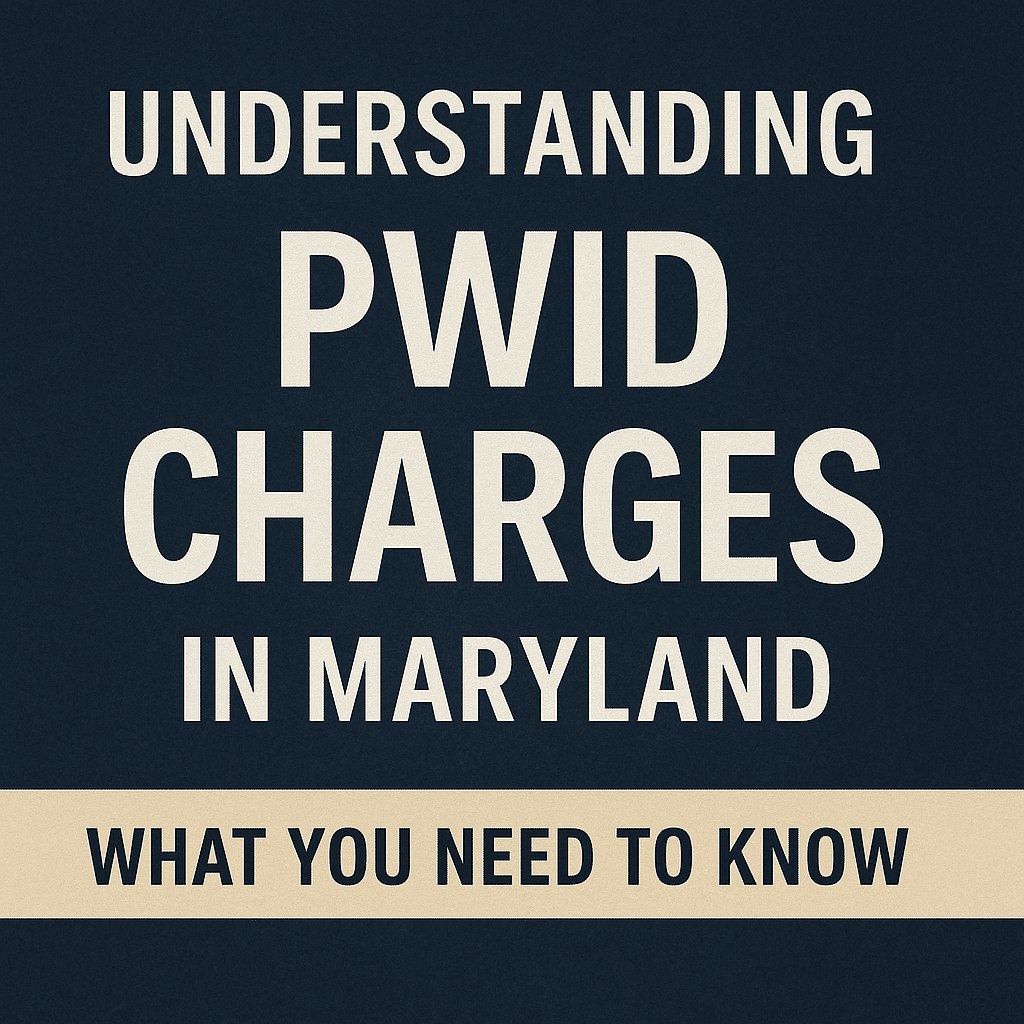
If you or a loved one has been charged with PWID—short for Possession With Intent to Distribute—you’re facing a serious drug offense under Maryland law. This is not the same as simple possession. A PWID charge means the state believes you intended to sell, transfer, or distribute a controlled substance, and the consequences can be severe.
In this post, we’ll break down what a PWID charge really means, how prosecutors try to prove it, what penalties you could face, and how an experienced Southern Maryland criminal lawyer can help.
What Is PWID in Maryland?
Under Maryland Criminal Law § 5-602, it is illegal to:
“Distribute or dispense a controlled dangerous substance, or possess a controlled dangerous substance in sufficient quantity to reasonably indicate an intent to distribute.”
In other words, you don’t have to be caught in the act of selling drugs to be charged with PWID. Police and prosecutors can infer intent based on circumstantial evidence, including:
- A large quantity of drugs (more than what’s considered for personal use)
- Packaging materials like baggies, scales, or vacuum sealers
- A significant amount of cash, especially in small denominations
- Text messages, call logs, or social media indicating transactions
- Observations from surveillance or confidential informants
Common Drugs Involved in PWID Charges
PWID charges can apply to both illegal street drugs and prescription medications. Some of the most common substances that trigger these charges in Maryland include:
- Cocaine
- Heroin
- Fentanyl
- Methamphetamine
- Marijuana (especially if over 50 pounds)
- Prescription pills like Oxycodone or Xanax when not lawfully possessed
Each of these substances falls into a specific schedule under Maryland law, and the penalties vary depending on the classification.
What Are the Penalties for PWID in Maryland?
PWID is a felony offense. The potential consequences depend on the type of drug involved, your prior record, and the circumstances of the arrest.
For Most Schedule I or II Substances:
- First offense: Up to 20 years in prison and a fine of up to $15,000
- Second offense: Mandatory 10-year minimum sentence
- Third or subsequent offense: Up to 40 years
Aggravating Factors That Increase Penalties:
- Distribution near schools, parks, or public housing
- Involvement of fentanyl, which has mandatory minimums
- Possession of a firearm during a drug crime
- Prior drug trafficking convictions
Convictions can also result in loss of driving privileges, asset forfeiture, and long-term consequences for employment, housing, and education.
How Do You Fight a PWID Charge?
The burden is on the prosecution to prove not only that you possessed a controlled substance, but that you intended to distribute it. A skilled defense attorney will examine every angle of your case to find weaknesses in the state’s evidence.
Possible defenses include:
- Illegal search or seizure under the Fourth Amendment
- Arguing the drugs were for personal use, not distribution
- Challenging constructive possession if the drugs weren’t found directly on you
- Disputing the interpretation of text messages or phone records
- Demonstrating that the evidence was mishandled or contaminated
In some cases, it may be possible to negotiate the charges down to a lesser offense—or fight for dismissal altogether.
Why You Need a Southern Maryland Criminal Lawyer
PWID cases are often aggressively prosecuted in Prince George’s, Charles, St. Mary’s, and Calvert Counties. Prosecutors and police may assume the worst about your intent—and the penalties you face are life-changing.
At Southern Maryland Criminal Defense, we understand how to challenge the government’s assumptions and build a strong defense. We’ve helped clients avoid prison, suppress illegal evidence, and reduce or eliminate felony drug charges.
Charged with Possession With Intent to Distribute?
Don’t wait. Schedule a free consultation today to protect your future.
